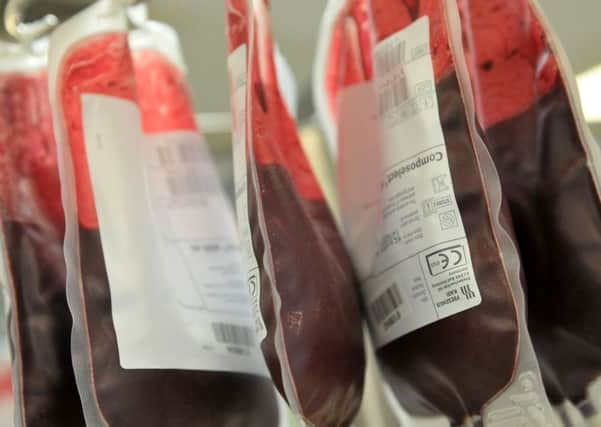Hep C testing drive after blood contamination report
This article contains affiliate links. We may earn a small commission on items purchased through this article, but that does not affect our editorial judgement.


The awareness drive is one of three recommendations made by a Scottish Government group set up following the Penrose inquiry into infected NHS blood products.
Hundreds of people in Scotland, many of whom were haemophiliac patients, were infected with hepatitis C and HIV through contaminated blood and blood products by the NHS in the 1970s and 1980s.
Advertisement
Hide AdAdvertisement
Hide AdThe Scottish Government accepted all of the group’s recommendations yesterday and now plans to carry out a targeted leaflet and poster campaign later this month to find pre-September 1991 blood transfusion patients who have not yet been tested for hepatitis C.
Officials will also attempt to identify and send a written test offer to a group of up to 71 plasma recipients with mild bleeding disorders who are as yet unknown to have been tested.
Scotland’s Chief Medical Officer, Dr Catherine Calderwood, will send a letter to doctors reminding them to offer hepatitis C tests to at risk groups.
Health secretary Shona Robison said: “One of the key issues which arose from the Penrose inquiry was whether there are any people who received hepatitis C from blood transfusions before September 1991 who have not yet been diagnosed.
“Although look-back exercises have been carried out in the past, I established this working group to try and assess the scale of this issue.
“The number of patients likely to be infected is very small and the lack of historical medical records makes tracing them difficult.
“However, it is possible there are still people yet to be tested and unaware of their infection, and so I have today accepted all these recommendations to ensure that everything possible is done to find people who may have been infected and offer them the best care and treatment.
“Treatments for hepatitis C have improved greatly in recent years.
Advertisement
Hide AdAdvertisement
Hide Ad“I would urge anyone who thinks they had a blood transfusion before September 1991 to seek advice from the hepatitis helpline or their GP practice about a test if they have not yet done so.”
Leon Wylie, lead officer of Hepatitis Scotland, welcomed the Scottish Government’s plans.
DOWNLOAD THE SCOTSMAN APP ON ITUNES OR GOOGLE PLAY
